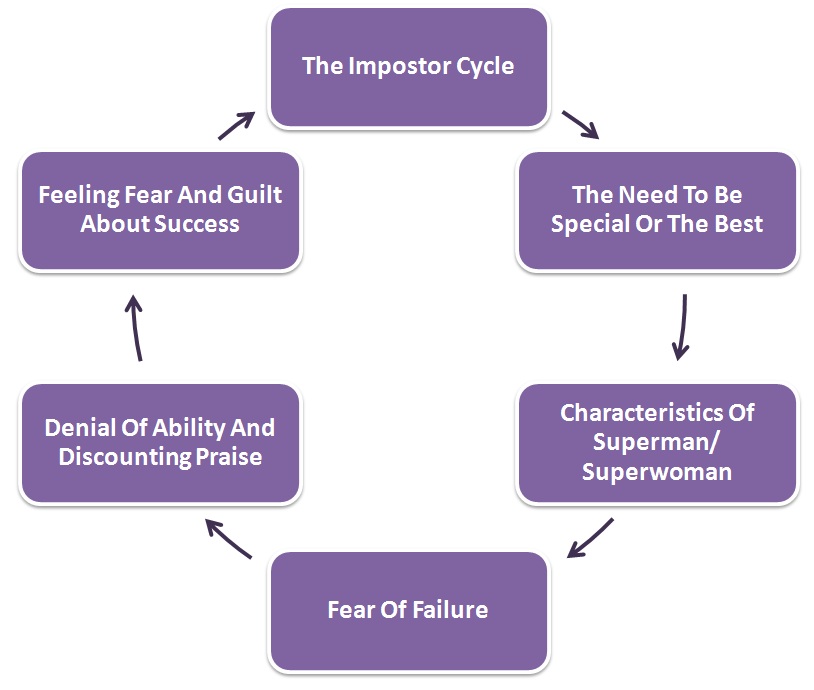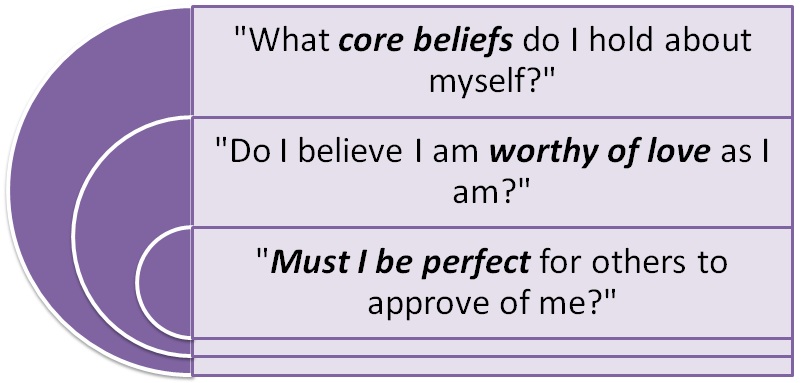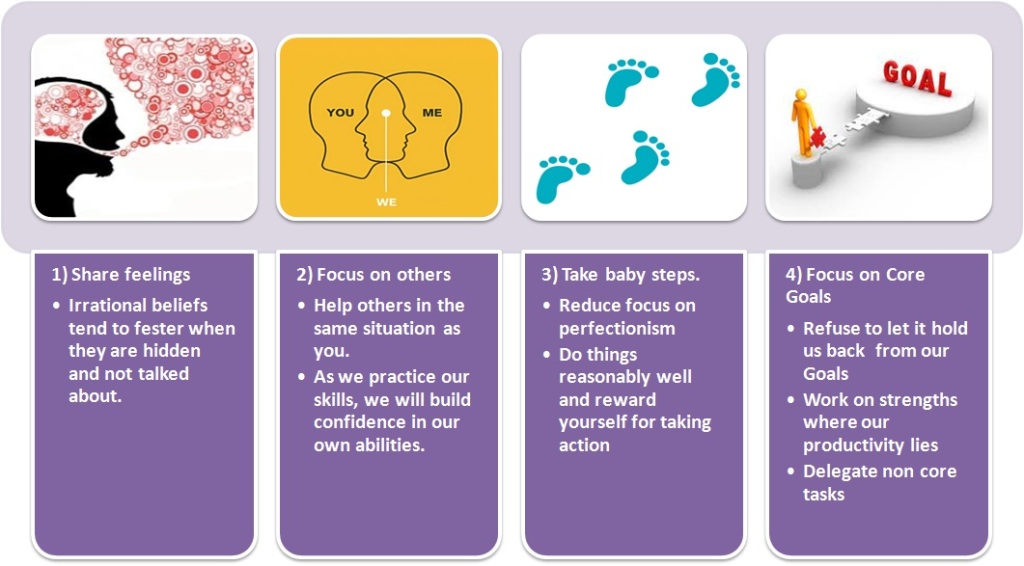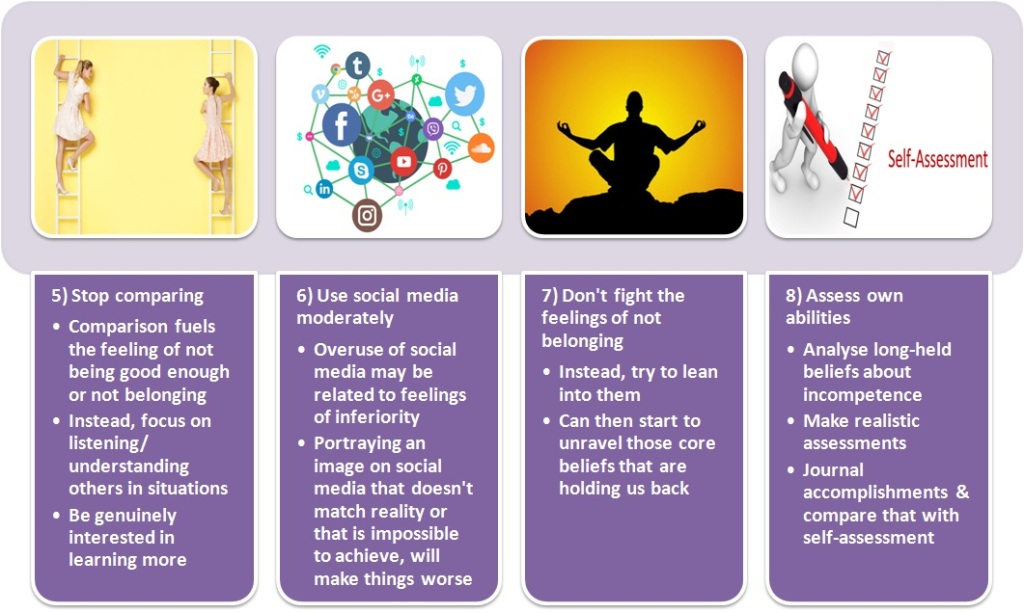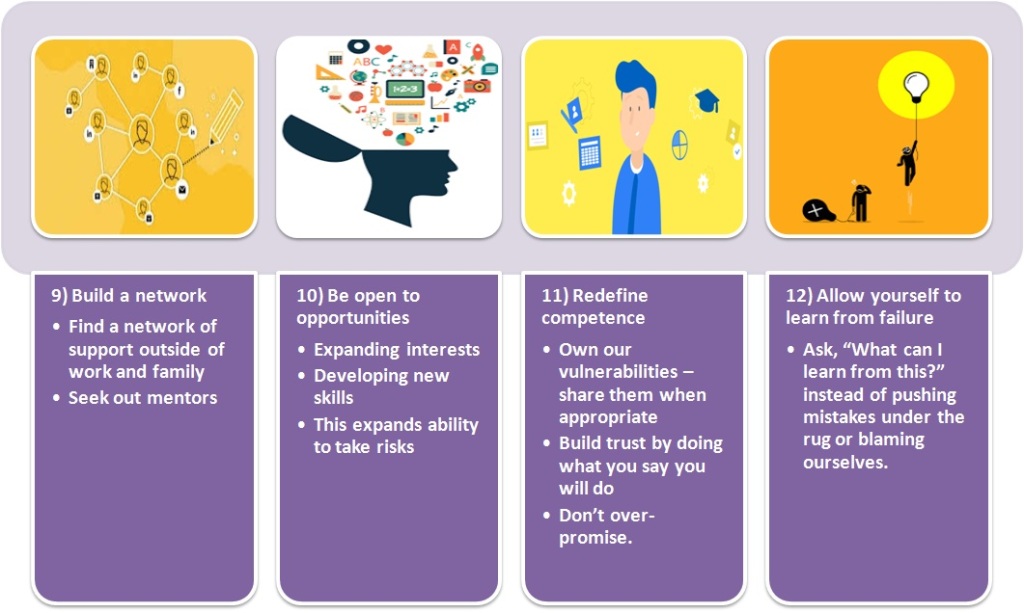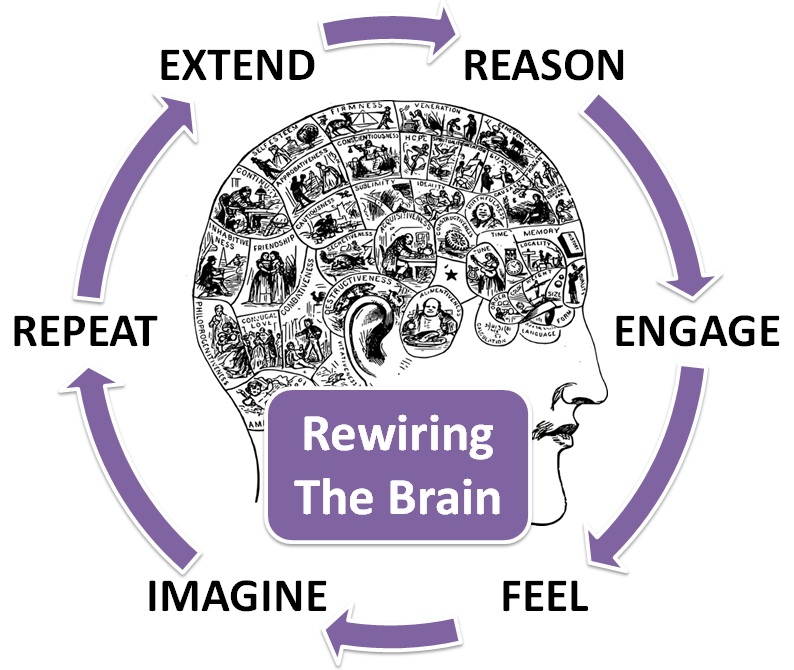
What Is Imposter Syndrome?
Impostor syndrome (also known as impostor phenomenon, impostor-ism, fraud syndrome or the impostor experience) is a psychological pattern in which an individual doubts their skills, talents, or accomplishments and has a persistent internalized fear of being exposed as a “fraud”. Impostor syndrome refers to an internal experience of believing that we are not as competent as others perceive us to be. While this definition is usually narrowly applied to intelligence and achievement, it has links to perfectionism and the social context.
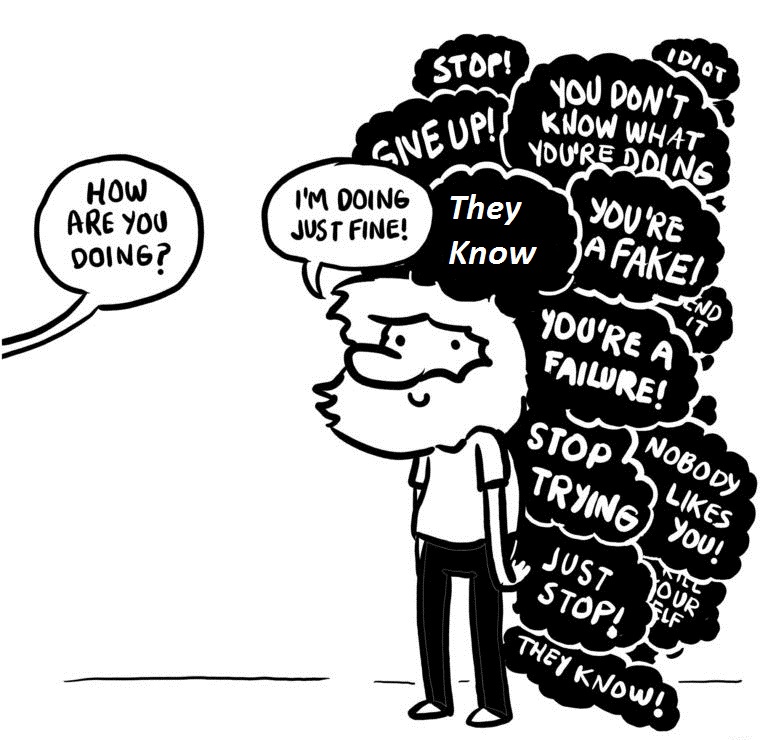
To put it simply, imposter syndrome is the experience of feeling like a phony—we feel as though at any moment we are going to be found out as a fraud—like we do not belong where we are, and we only got there through dumb luck. It can affect anyone no matter their social status, work background, skill level, or degree of expertise.
Impostor syndrome is different from the standard “fake it until you make it” in that impostor syndrome impacts people who have already made it in a big way. People like Neil Armstrong, Michelle Obama, and Tom Hanks have all had bouts with impostor syndrome. If people who’ve achieved that level of success feel impostor syndrome, it’s a pretty normal feeling for any of us to feel the same.
Imposter syndrome takes up a lot of emotional energy and physical time, both of which we could be investing in our business, relationships, or personal life. It can also drive hesitation and prevent us from taking on opportunities that can propel our success. Imposter syndrome also occurs in normal human-to-human relationships. Based on this syndrome, continuing doubts about people and individual defense mechanisms are considered difficult to achieve healthy relationships.
Despite external evidence of their competence, those experiencing this phenomenon remain convinced that they are frauds and do not deserve all they have achieved. Individuals with impostorism incorrectly attribute their success to luck, or interpret it as a result of deceiving others into thinking they are more intelligent than they perceive themselves to be.
Common Characteristics of Imposter Syndrome

Causes of Imposter Syndrome
While for some people, impostor syndrome can fuel thoughts of motivation to achieve, this usually comes at a cost in the form of constant anxiety. We might over-prepare or work much harder than necessary to “make sure” that nobody finds out we are a fraud. This sets up a vicious cycle, in which we think that the only reason we survived that class presentation was that we stayed up all night rehearsing. The problem with impostor syndrome is that the experience of doing well at something does nothing to change our beliefs. It’s as though we cannot internalize our experiences of success.
This makes sense in terms of social anxiety if we received early feedback that we were not good at social or performance situations. Our core beliefs about ourselves are so strong, that they do not change, even when there is evidence to the contrary. The thought process is: If we do well, it must be the result of luck because a socially incompetent person just doesn’t belong.
Impostor Syndrome and Social Anxiety
Eventually, these feelings worsen anxiety and may lead to depression. People who experience impostor syndrome also tend not to talk about how they are feeling with anyone and struggle in silence, just as do those with social anxiety disorder.
Impostor syndrome and social anxiety may overlap. We might be in a conversation with someone and feel as though they are going to discover our social incompetence. We might be delivering a presentation and feel as though we just need to get through it before anyone realizes we really don’t belong there. While the symptoms of social anxiety can fuel feelings of impostor syndrome, this does not mean that everyone with impostor syndrome has social anxiety or vice versa. People without social anxiety can also feel a lack of confidence and competence. Impostor syndrome often causes normally non-anxious people to experience a sense of anxiety when they are in situations where they feel inadequate.
Identifying Impostor Syndrome
Self reflective inquiry can help in the identification Some of these stimulus may be:
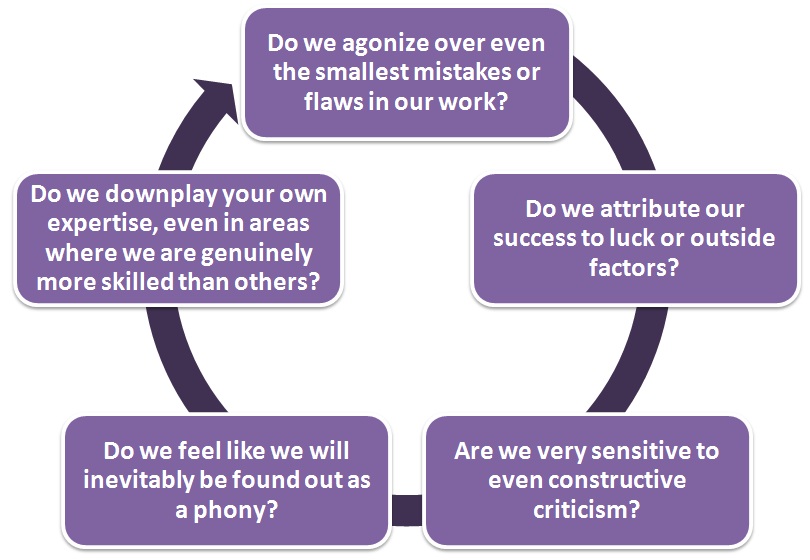
The negative thinking, self-doubt, and self-sabotage that often characterize imposter syndrome can have an effect on many areas of our life.
Impostor syndrome Appearance
Impostor syndrome can appear in a number of different ways:

Impostor Syndrome and Procrastination
Impostor syndrome can send us into some very interesting cycles of procrastination and over preparation.
- Impostor syndrome drives us to over-prepare or procrastinate achievement-related tasks
- The results of our over preparation and procrastination feed more impostor syndrome.
It’s a cycle called the Impostor Cycle. Here’s how it works. Think about having done something in the past – any achievement-related task like taking a test, giving a presentation at work, playing an open-mic night, or even writing an article. Here is how it flows:
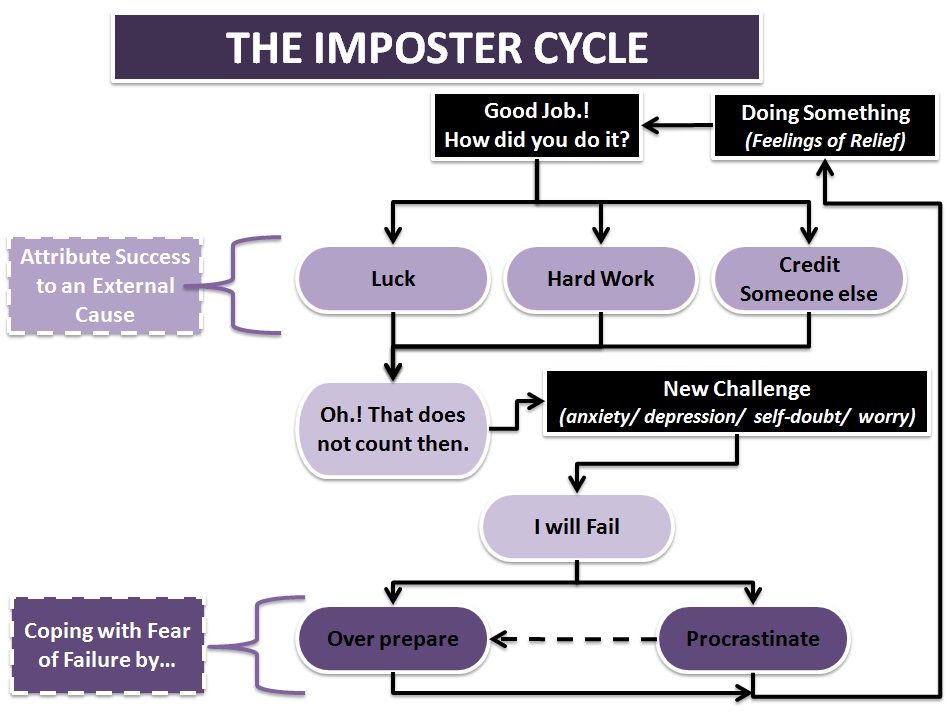
The Procrastination Path
If we procrastinate on that task, then we will rush at the end of our procrastination habit to cram in the work we have to do. In this situation, no one knows that we procrastinated except for us. When the task goes well, a normal feedback-loop would boost our confidence. But in the Impostor Cycle loop, we discount the positive feedback that we receive because we know that we procrastinated. We start to feel like we have fooled people yet again and did not earn that positive feedback.
The next time we receive a task, we know that this could be the time that we fail and people figure out that we have been a fraud the entire time. So our ego kicks and it avoids the task and procrastinates again. This creates a see-saw battle between procrastination and impostor syndrome that is challenging to interrupt.
Over Preparation Path
Over preparation has two potential impostor cycles.
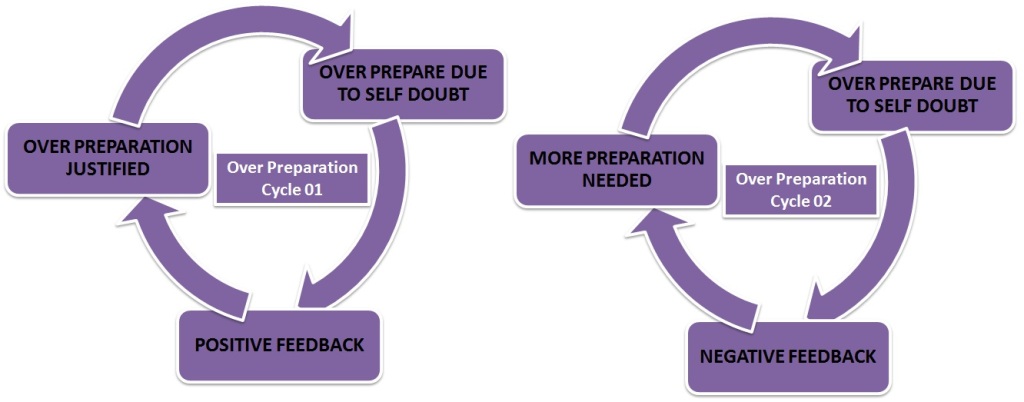
***To be continued in Chapter 02 (Root causes, measuring Imposter Syndrome, Ways to identify and cope) – Link to Chapter -02:

Content Curated By: Dr Shoury Kuttappa.



